Download our key publications to keep up with our work.
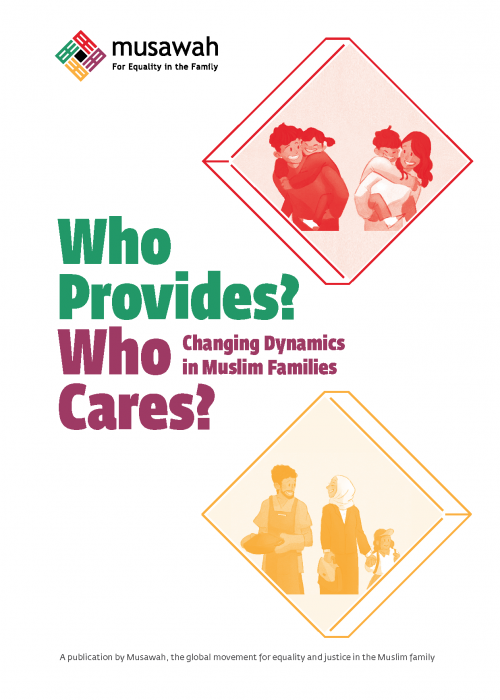
This thematic paper examines economic and parental rights and responsibilities in Muslim families using the holistic Musawah approach, which integrates Islamic teachings, international human rights principles, national guarantees of equality, and realities of women’s and men’s lives today. It argues that states, the private sector, communities and NGOs, faith-based leaders, and individuals and families should work to reform Muslim family laws and reshape family relationships in a way that is true to the Qur’anic ethos and reflects the needs and realities of today’s societies. The Wheel of Healthy Muslim Families also was derived from the key recommendations to families and individuals in order to facilitate transformation in marital relationships. It is illustrated as a positive version of the Wheel of Power and Control that is used in spaces to combat violence against women.
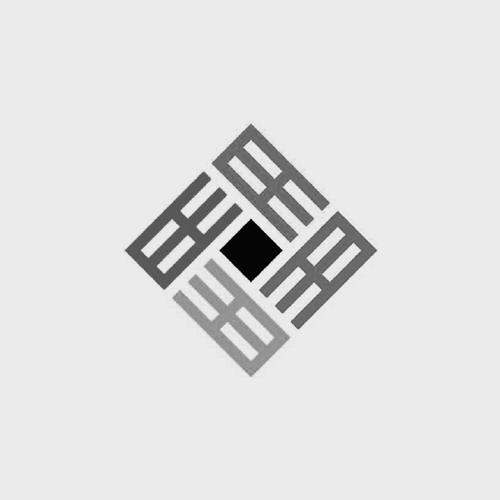
Musawah Knowledge Building Briefs, a series that promotes the use of a new egalitarian language, provides arguments for advocacy, and conveys key ideas and concepts related to Muslim legal tradition in a simple and appealing way.
Issue 1: Shari’ah, Fiqh and State Laws in Arabic, English, French (2016)
Issue 2: Muslim Family Laws: What Makes Reform Possible? in Arabic, English, French
Issue 3: Islam and the Question of Gender Equality in Arabic, English, French (2017)
Issue 4: CEDAW and Muslim Family Laws in Arabic, English, French (2017)
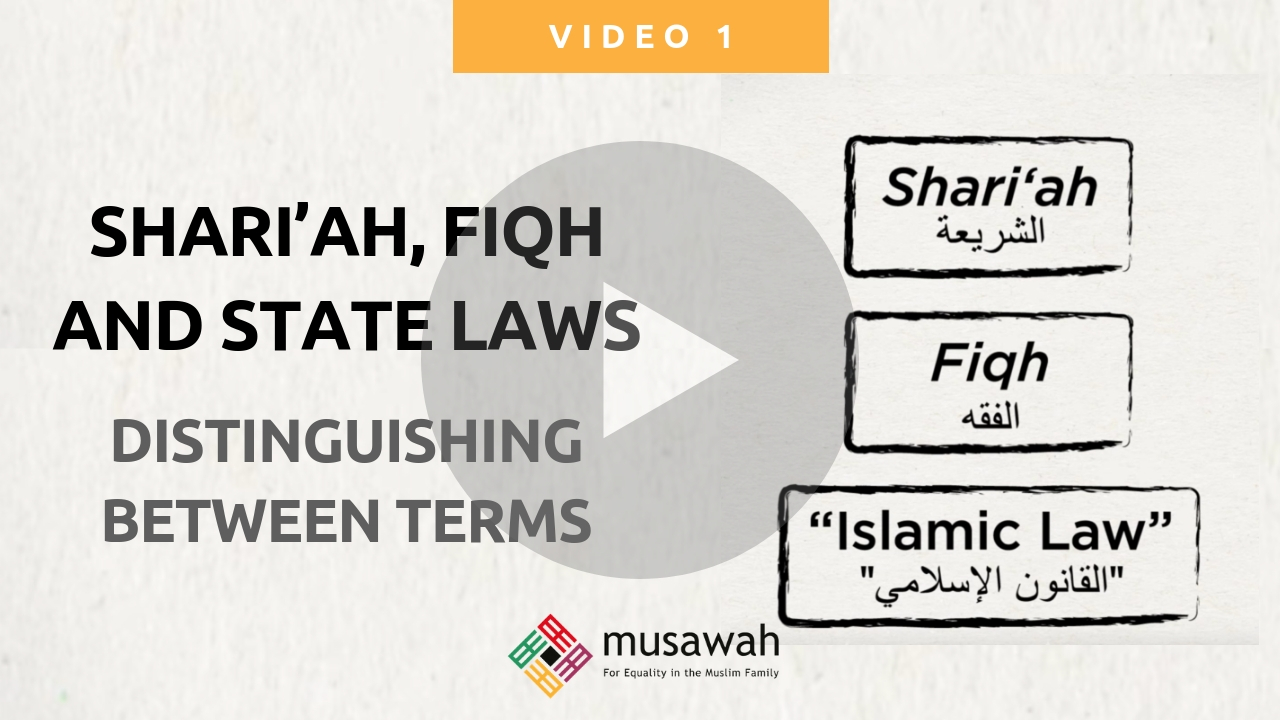
In this video, we unravel the often blurred boundaries between Shariʿah, fiqh, and Islamic law. Such confusion can perpetuate gender inequality in modern family laws. Learn why it’s vital to distinguish these terms, separating the divine and eternal from the human and temporal.
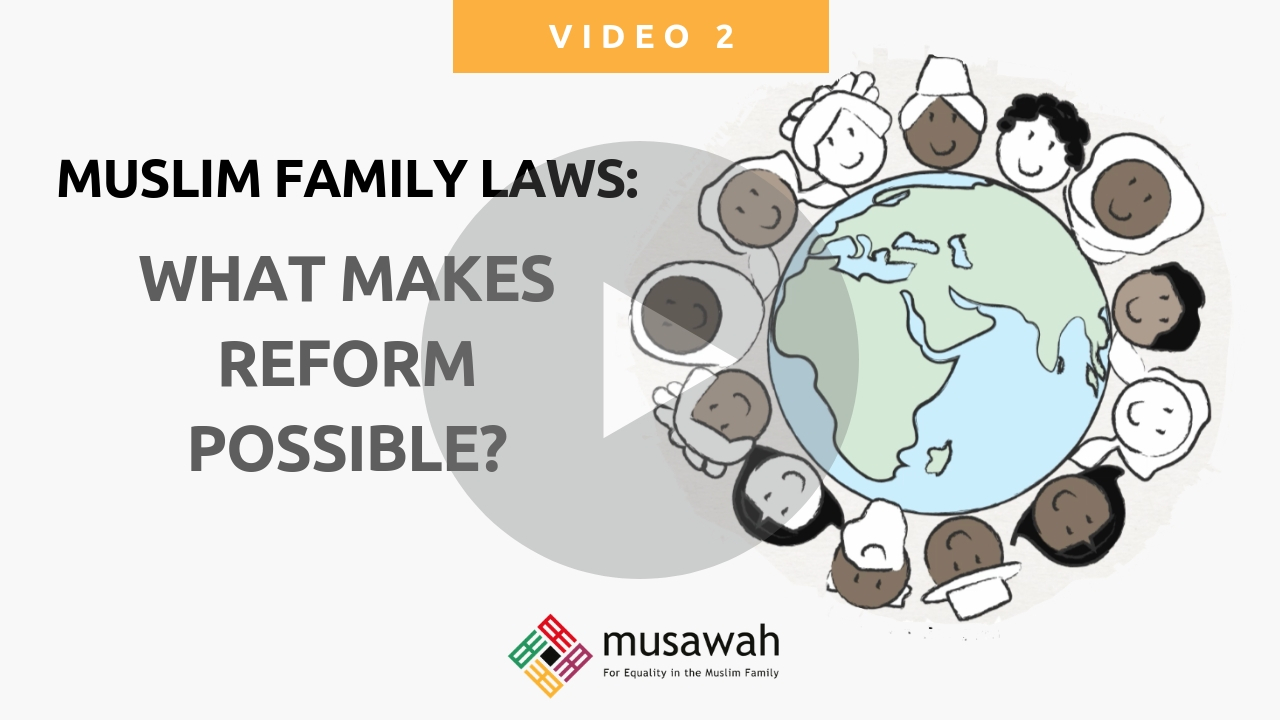
Explore the inherent capacity for reform within Muslim legal tradition, countering the notion that Muslim family laws are unchangeable due to their divine origins. Discover the concepts and tools that pave the way for family laws in harmony with contemporary Muslim realities, justice, and gender equality.
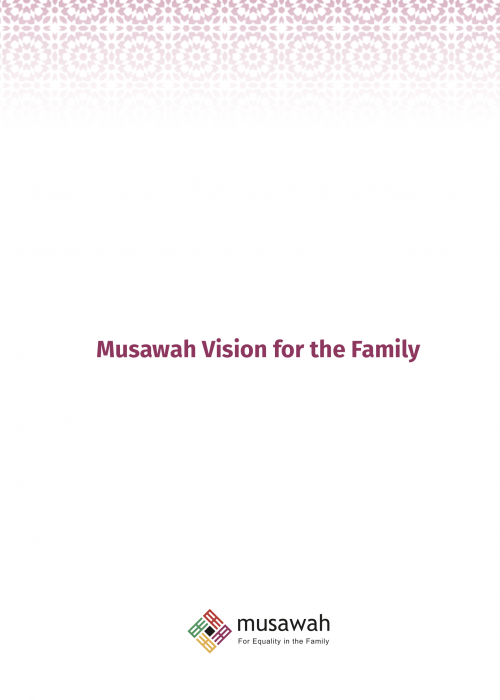
Musawah Vision for the Family proposes a model of Muslim family relations that upholds equality and justice for all family members and promotes the well-being of families and society. The document outlines how and why we must rethink notions of male authority and guardianship (qiwamah and wilayah) over women on the basis of Qur’anic values, Muslim legal tradition, human rights principles, and the lived realities of women and men.
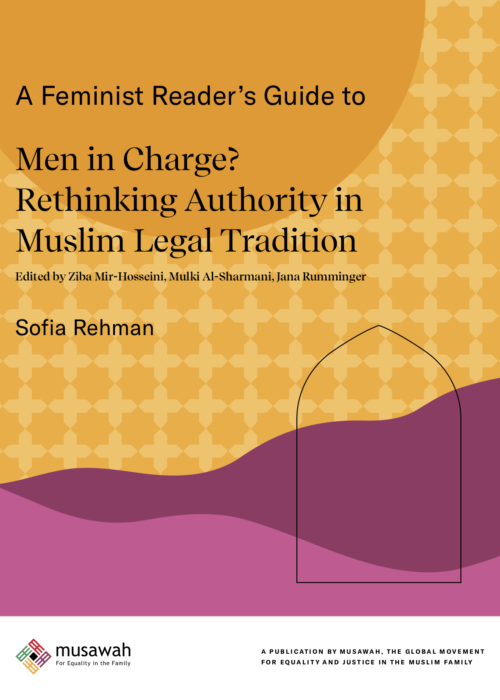
Men in Charge? Rethinking Authority in Muslim Legal Tradition (Edited by Ziba Mir-Hosseini, Mulki Al-Sharmani, and Jana Rumminger), in English (Oneworld, 2015) and Arabic (2017). This is a collection of ten papers that critically engage with and challenge the assumption of male authority over women within Muslim legal tradition.
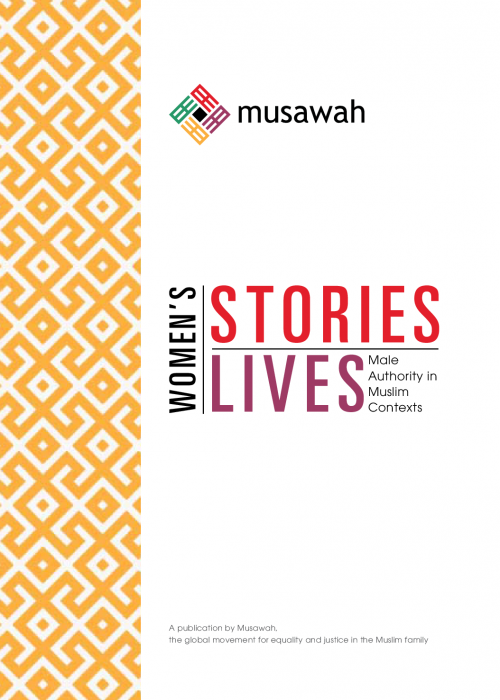
A global report with stories and findings from the Global Life Stories Project, in which teams from nine countries (Bangladesh, Canada, Egypt, Gambia, Indonesia, Iran, Malaysia, Nigeria, and the United Kingdom) documented women’s life stories to better understand their experiences with qiwamah and wilayah. The Project and some initial findings were also summarised in a chapter in Men in Charge?
Available in English (2016) and Arabic (2017)
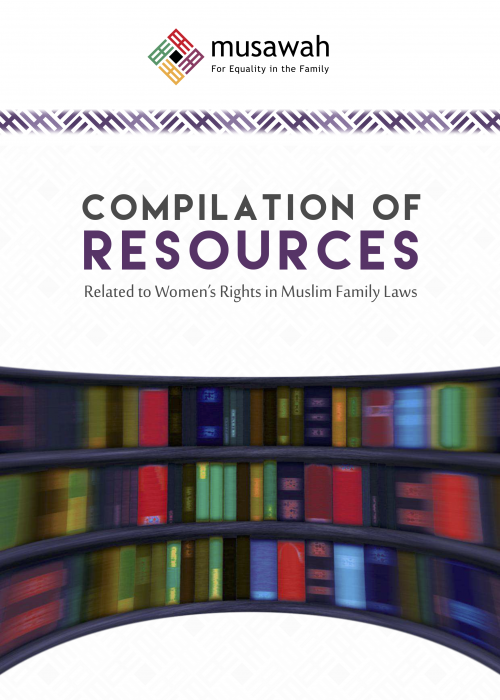
Outlines and brings together resources from the four corners of Musawah’s holistic framework – Islamic teachings, universal human rights, national and constitutional guarantees of equality and the lived realities of women and men – broken down according to specific topics related to women’s rights in Muslim family laws.
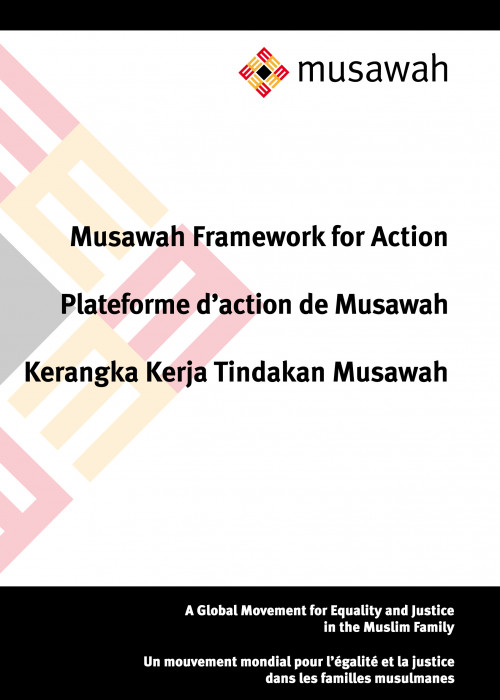
This paper provides the conceptual framework for Musawah, demonstrating that equality in the family is necessary and possible through a holistic approach that brings together Islamic teachings, universal human rights principles, fundamental rights and constitutional guarantees, and the lived realities of women and men today.
Available in English, Arabic, French, Farsi, and Bahasa Malaysia.
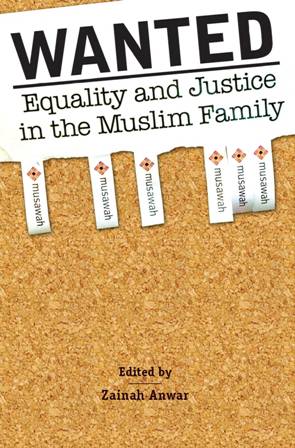
This is a set of theoretical papers that seek to understand the genesis of Muslim family law, how it was constructed within the classical fiqh tradition, and how the wealth of resources within fiqh and Qur’anic verses on justice, compassion, and equality can support reform towards more egalitarian family relationships.
Edited by Zainah Anwar. Available in English, Arabic, and French (2009)
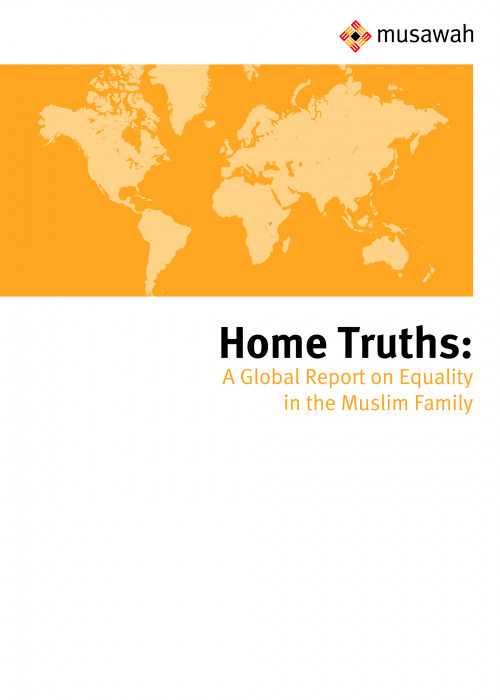
This report is based on information provided by national groups, shows why equality in Muslim family laws is necessary and why it is possible in 30 countries.
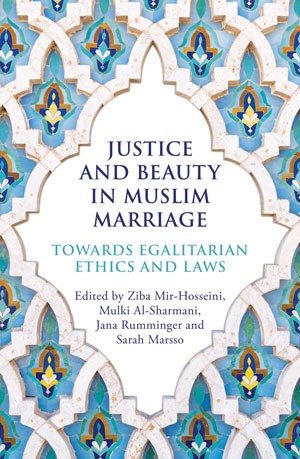
Edited by Ziba Mir-Hosseini, Mulki Al-Sharmani, and Jana Rumminger. Available in English (Oneworld, 2022) and Arabic (2023)
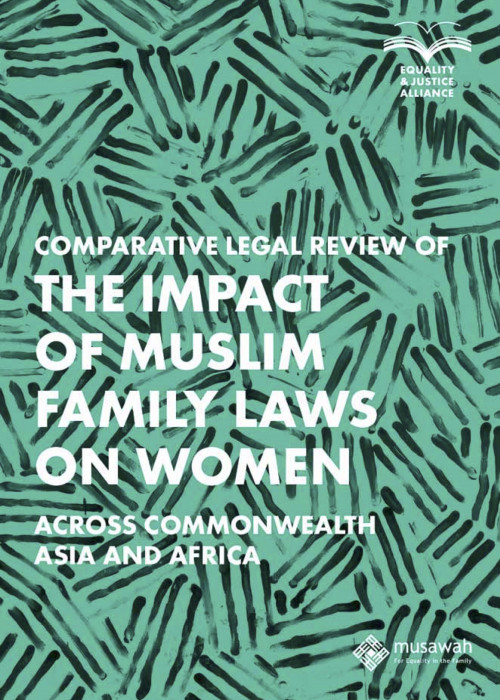
This report provides a detailed analysis of 12 principal areas of concern relating to marriage and family matters in 10 Commonwealth countries where Muslim women and girls suffer discrimination under current Muslim family laws: Bangladesh, Brunei, India, Kenya, Malaysia, Nigeria, Pakistan, Singapore, South Africa, and Sri Lanka. The report discusses the work of the Committee on the Elimination of Discrimination against Women in urging legal reform of discriminatory religious and personal laws; highlights the critical legal advocacy work of domestic women’s rights organisations across the 10 countries; analyses steps taken by governments to reform and/or overcome resistance to legislative change; and concludes with a
series of recommendations for reform.
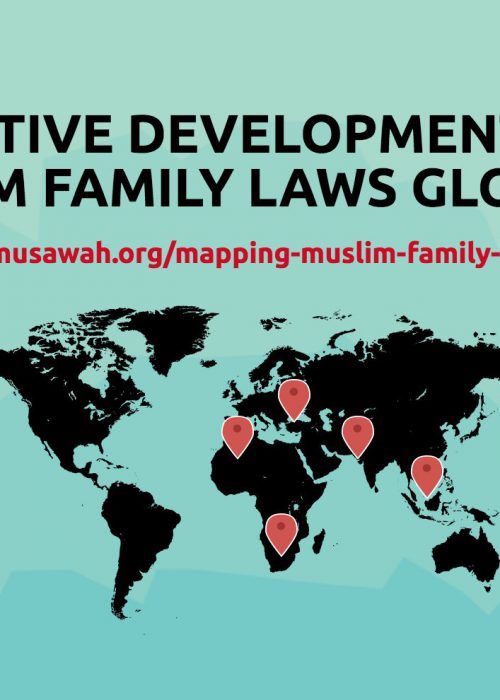
Mapping of Muslim Family Laws globally (2016–ongoing): Country Overview tables and Positive Developments Table. These tables contain information outlining the legislative frameworks, available case law, policies, procedures and practices in multiple countries on 12 principal issues of concern.
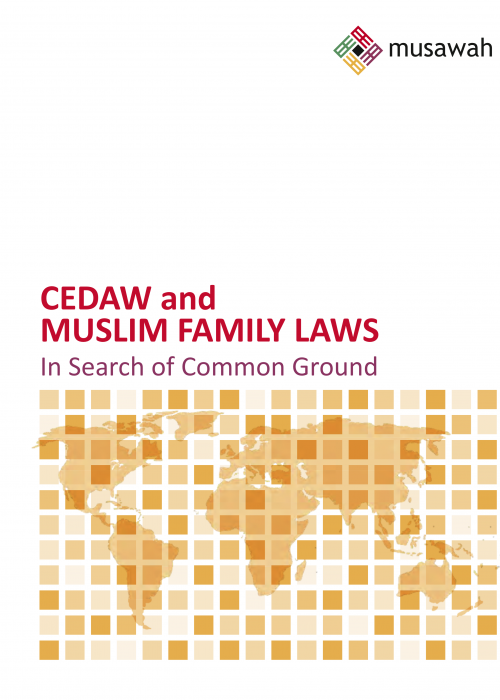
This report outlines the arguments related to Islam made by 44 OIC countries in their CEDAW reporting documents and constructive dialogues with the CEDAW Committee and Musawah’s responses based on our Framework for Action.
Available in English and Arabic.

CEDAW Thematic Reports and Oral Statements (ongoing) on various countries reporting to the CEDAW Committee October 2011–February 2020, including Afghanistan, Algeria, Bahrain, Brunei Darussalam, the Gambia, Indonesia, Iraq, Jordan, Kenya, Kuwait, Lebanon, Malaysia, Maldives, Mali, Mauritania, Mauritius, Nepal, Oman, Pakistan, Palestine, Philippines, Qatar, Saudi Arabia, Singapore, Sri Lanka, Syria, Tanzania, Thailand, Turkey and United Arab Emirates. [Note: Please see the website for a full listing and links to oral statements for those countries.] These reports and statements, which were prepared in consultation with NGOs and activists from the reporting countries, have been raised by the Committee members during constructive dialogues with States parties and in CEDAW Concluding Observations.
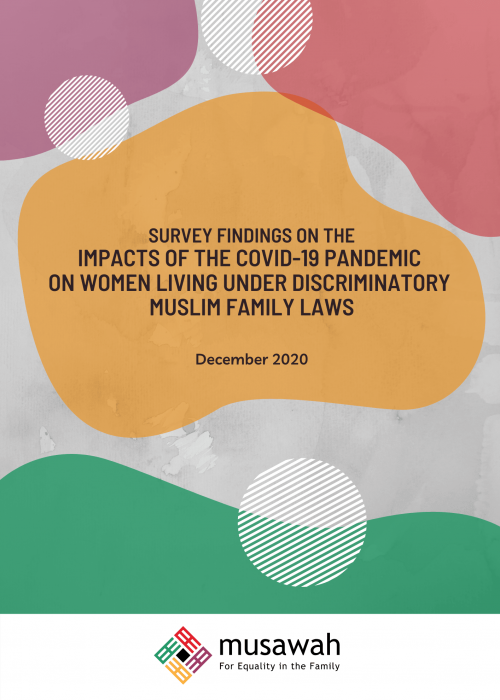
Survey findings on the Impacts of the COVID-19 pandemic on women living under discriminatory Muslim family laws in English (March 2021)
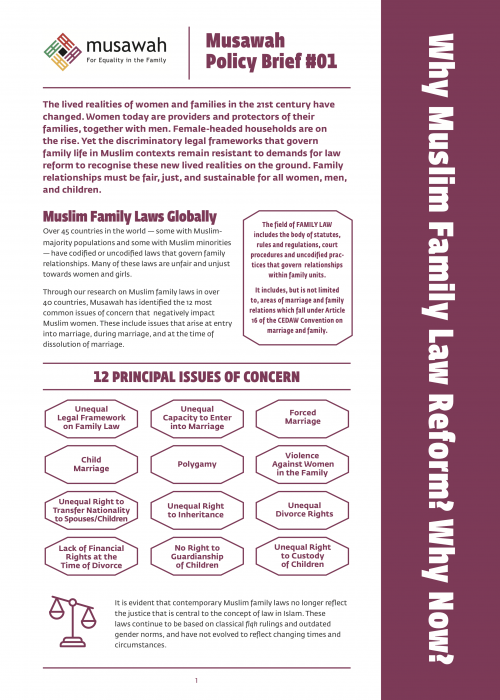
Available in English and Arabic (2021)
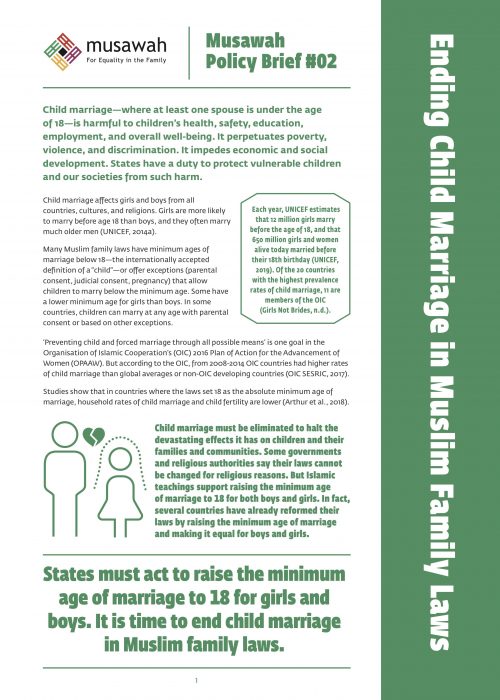
Available in English and Arabic (2021)
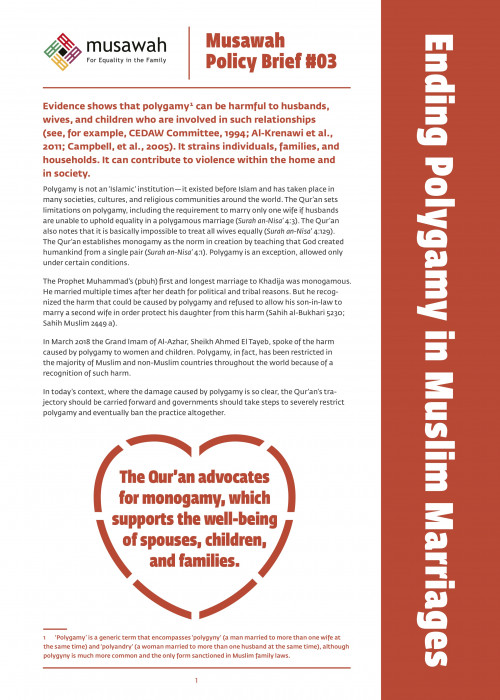
Available in English and Arabic (2021)
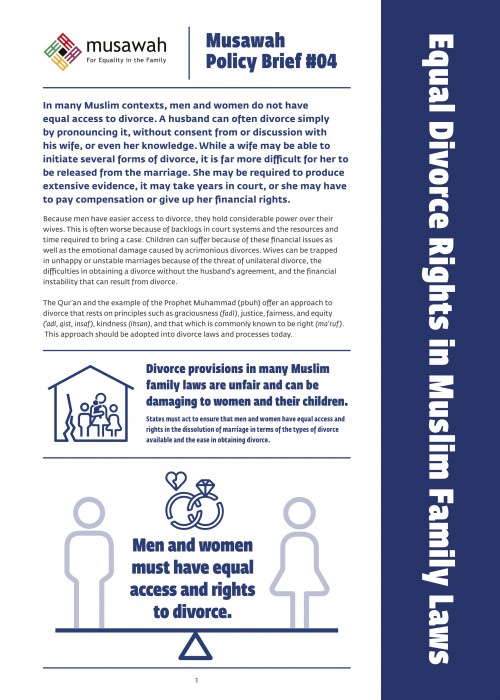
Available in English, Arabic, Sinhala, Tamil
(2021)
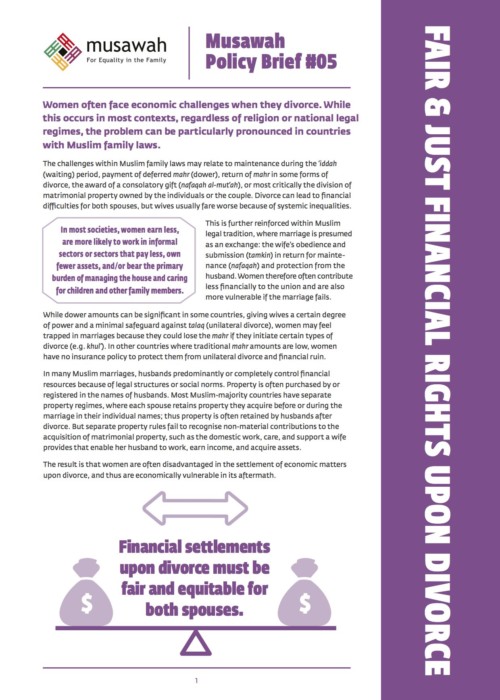
Available in English and Arabic (2021)
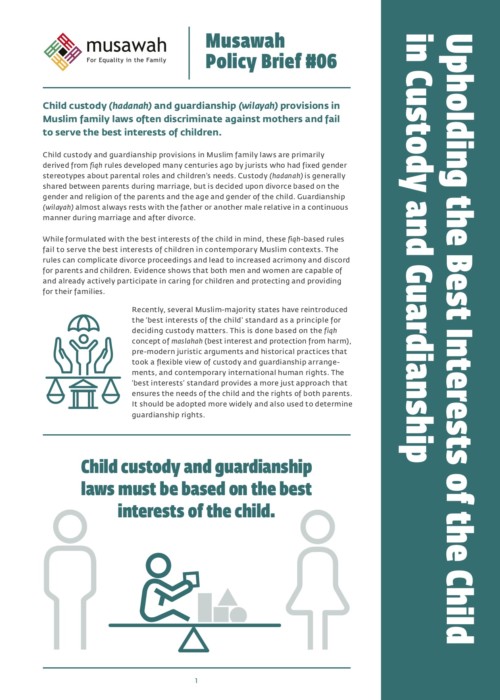
Available in English and Arabic (2021)
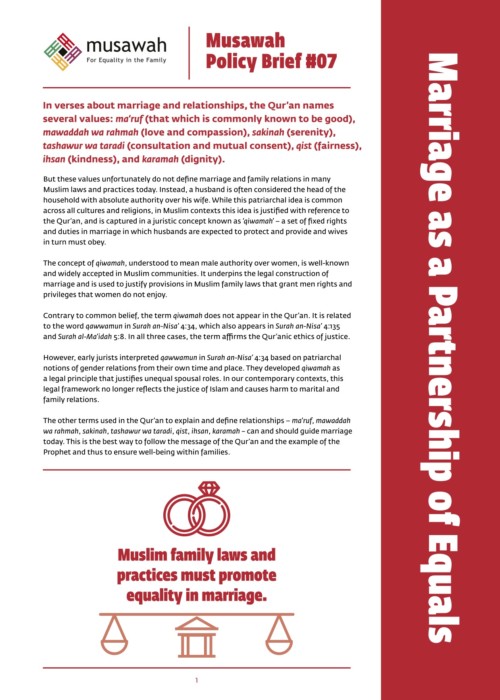
Available in English and Arabic (2021)
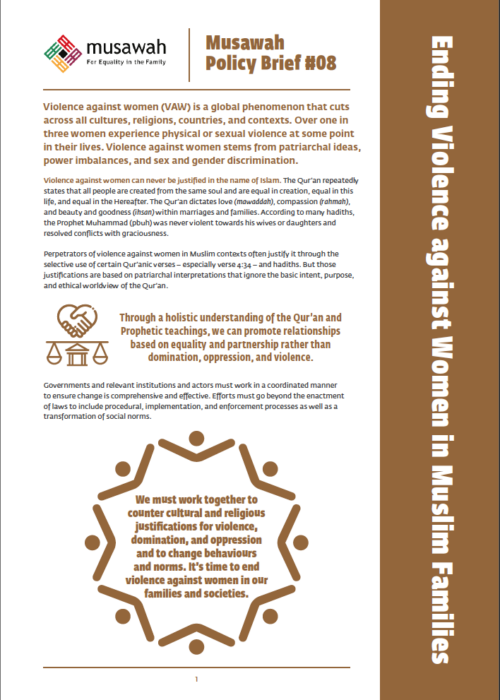
Available in English and Arabic (2023)
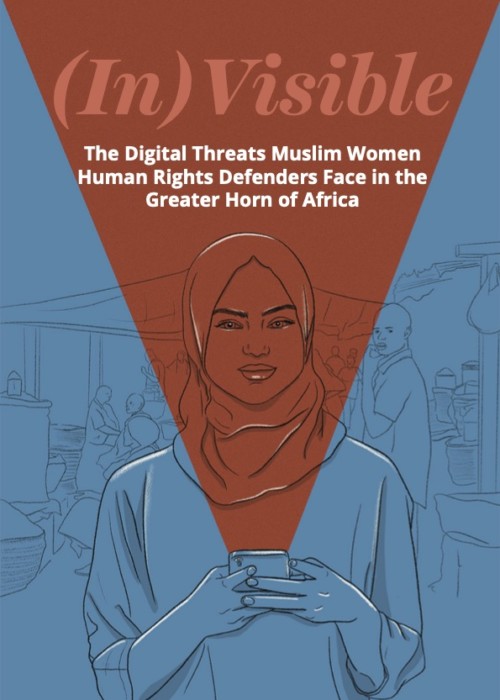
Available in English and Arabic (2023)
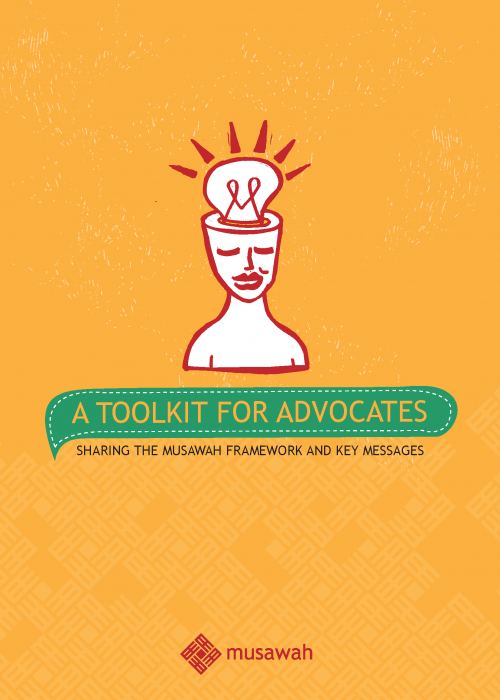
This toolkit, which introduces key elements in the Musawah Framework for Action and key messages, is a tool for building knowledge and mobilising for equality in the family
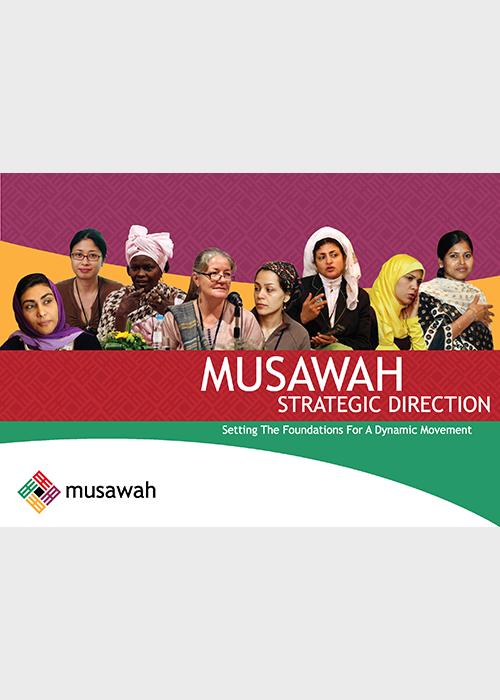
This report outlines Musawah’s short- and longer-term strategy in its key areas of work.